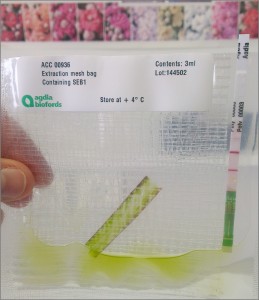Agdia Now Accepting Hemp Samples for Pathogen Testing
Following decades of service to food crop and ornamental growers, Agdia’s in-house diagnostic laboratory is now offering its expansive disease testing program to the hemp market.
Deborah (Debi) Groth-Helms is the Director of Agdia’s Testing Services department. “We are excited to finally offer our comprehensive virus testing program to hemp growers and diagnosticians. For years we have worked with stock and seed producers in screening propagative tissues for the presence of key pathogens. Now we can help bolster the US hemp industry in their efforts to produce the healthiest plants possible.”
Agdia Testing Services offers multiple screening options and works with clients in customizing screens to best suit their needs. The basic Hemp Screen includes a panel of a dozen different tests for viruses, viroids, and other microorganisms.
According to Debi, “Information is being rapidly released on what causes disease in Cannabis. Having a big catalog of services already in place allows us to quickly respond to new reports. Experience working with closely related plant species helps us know what to monitor before an outbreak occurs.”
Included in the Hemp Screen are tests for Alfalfa mosaic virus (AMV), Cucumber mosaic virus (CMV), Hop latent viroid (HLVd), and many others. The Curto-Becurtovirus Group test listed in the screen detects all of the various virus species associated with Beet curly top disease. Additional tests are also available for less common or emerging pathogens. These highly sensitive molecular assays can be used to detect diseases such as witches’ broom (Phytoplasma Group PCR) and Lettuce chlorosis virus (Closteroviridae Group PCR).
Currently the laboratory is only accepting hemp tissues from US submitters that hold an active hemp license through the USDA, their state government, or tribal entity. Information on hemp licensing and the 2018 Farm Bill can be found on the USDA’s website. The laboratory recommends shipping plant material with the United States Postal Service (USPS) along with a completed sample submission form.
Information on how to send samples can be found on the Agdia website. Questions regarding samples, customized screens, requests for quotes, and all other inquiries can be sent to info@agdia-emea.com





